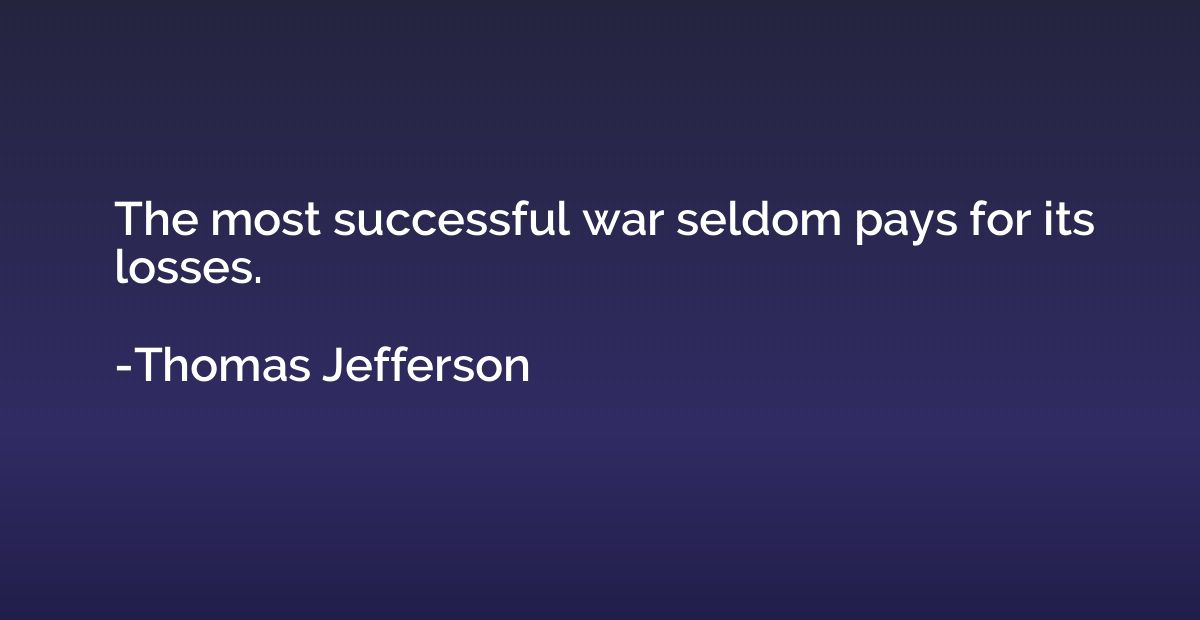Summary
This quote asserts that even though a war may be considered a success, it often incurs significant losses that outweigh any potential benefits. It implies that the costs of war, whether human lives, economic damage, or social upheaval, are rarely adequately compensated by the desired outcomes. The quote serves as a reminder of the devastations and inherent futility of warfare, highlighting the discrepancy between perceived success and the real toll it exacts on all parties involved.















